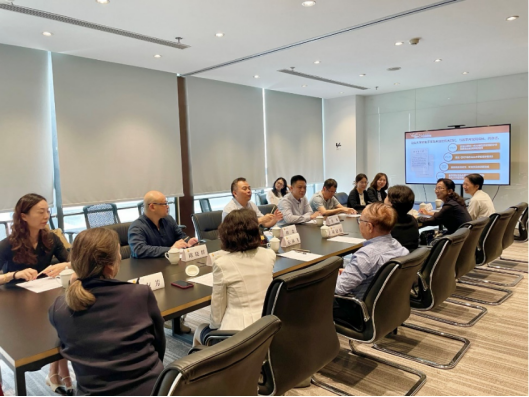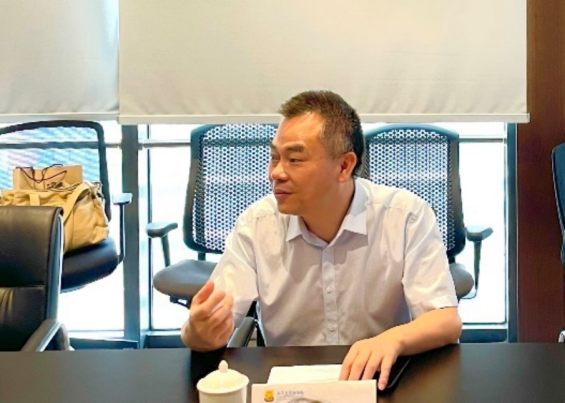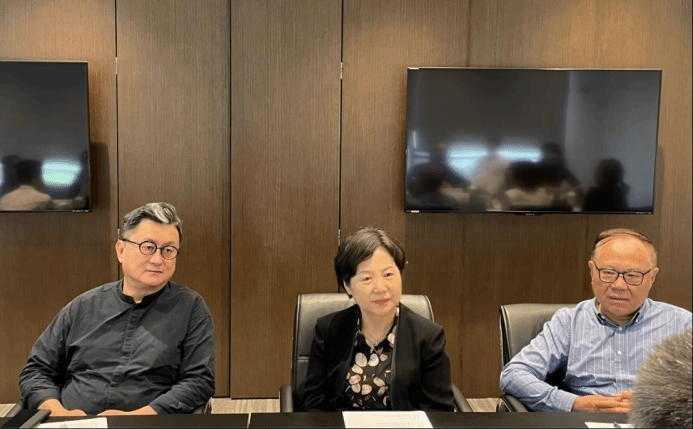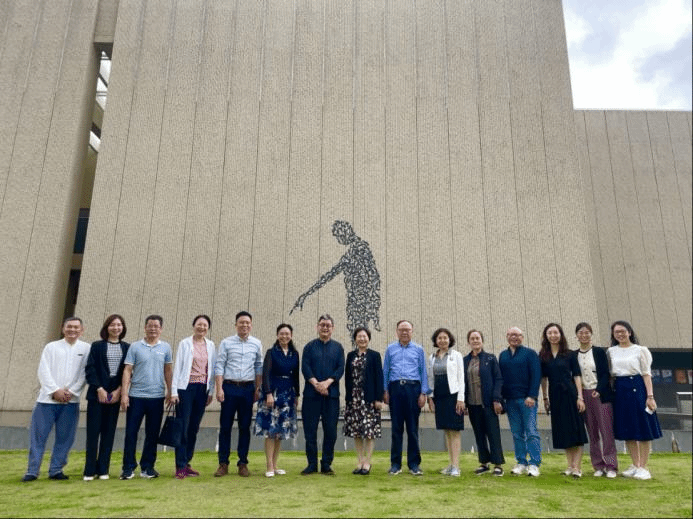On June 11th, Vice Chairman Zhou Jiannong and his delegation from the All-China Federation of Returned Overseas Chinese visited theSchool ofBusiness Shantou University for research and investigation. The research seminar was held in Room 3 of the AcademicHouse at Shantou University. Shantou University's Vice President Hu Zhong and Professor Hu Shaodong fromSchool ofBusiness attended the seminar. The meeting was chaired by Professor Liang Qiang, the Dean of School ofBusiness.

During the seminar, Vice President Hu Zhong and Dean Liang Qiang first presented the development of Shantou University and School ofBusiness. Vice President Hu Zhong pointed out that Shantou University emerged during the transformative era of reform and opening up, sharing both its growth and destiny with this pivotal period of change.
Dean Liang Qiang expressed that in recent years, the faculty of theSchool has fully leveraged their professional strengths to actively conduct specialized research onChaoshangand overseas Chinese culture. He also encouraged the faculty to explore solutions to practical issues in economic management related to China's style of modernization. As a result, they have accumulated over 30 research outcomes related to overseas Chinese studies. Through their research efforts, they aim to unite the aspirations and wisdom of overseas Chinese and contribute to the advancement of China's unique modernization process.

During the seminar, Professor Song Linfei of Nanjing University, delivered a special presentation titled "China's Style of Modernization: Jiangsu's Practice and Theoretical Insights." In his report, he delved into an in-depth analysis of Jiangsu Province's experiences and insights in achieving China's unique modernization and the goal of shared prosperity.
Vice Chairman Zhou Jiannong highly praised Shantou University for its dedicated efforts in advancing undergraduate education and contributing to the local community. During the seminar, the participants engaged in extensive discussions on topics including the substantial development of higher education institutions, coordinated development between urban and rural areas, and rural revitalization.

